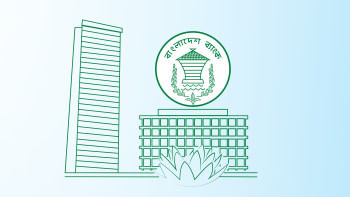Data scarcity biggest challenge to SDGs
Data scarcity has emerged as one of the major challenges in implementation of the Sustainable Development Goals, as it has left planning for achieving the seminal targets a guessing game, said the General Economics Division in the latest SDG progress report.
“We have felt the pinch in preparing the 2018 SDG progress report, because we have data for only 70 indicators out of the 232 prescribed by the United Nations to asses progress of SDGs,” said Shamsul Alam, a member of the GED, a branch of the Planning Commission, in the report.
The progress report will be unveiled today by Planning Minister MA Mannan at a programme at the planning ministry.
It could be because of the data paucity that the UN Sustainable Development Solutions Network (UN SDSN) ranked Bangladesh 120 out of 157 countries in the SDG Index and Data Dashboards Report 2017, Alam said. “The ranking could have been made based on partially available data or data gathered from non-credible sources. Latest data, albeit often with a lag of 2-3 years, of course do not support this ranking.”
Subsequently, he urged the UN SDSN to harmonise its data with the Bangladesh government's.
He also called upon the National Statistical Organisation to step up its efforts to plug the data gaps. “For this to happen, the capacity of the Bangladesh Bureau of Statistics needs to be strengthened or perhaps revamped.”
The line ministries and divisions should also take an initiative to generate administrative data related to the SDGs in a timely and reliable manner, Alam added.
Buoyed by its great success in implementation of the Millennium Development Goals, Bangladesh adopted the SDGs, which comprised of 17 goals, in October 2015 to be implemented by 2030. It coincided with the 7th five-year plan, making them a national development agenda.
The goals aim to address pressing development issues, such as human potential, poverty and inequality, food security and nutrition, health and family planning, gender equality, quality education and skills, employment and worker rights, good governance, sustainable production and consumption, environmental sustainability and disaster management, and international cooperation and partnership.
“Achieving SDGs will critically depend on the availability of resources, including external resources. The international community will have to provide adequate and timely support to Bangladesh to help implement a comprehensive and all-encompassing development agenda like the SDGs.”
There is a need for enhanced international cooperation and support for achieving 41 of the 169 targets of the SDGs, the report said.
The first three SDGs pertain to ending poverty, hunger and improving public health and Bangladesh has made good progress on all three and is on track to achieving the targets.
Of the 17 targets under the three SDGs, four have been met already, six are on track and five need more attention.
The progress on reducing extreme poverty measured by $1.90 a day or by national poverty line and on expanding coverage of social protection and proportion of government expenditure on services (health, education and social protection) as share of the total government expenditure is on track.
The country has much to do on eliminating gender disparity at the tertiary education level, attaining gender equality and for women empowerment. Of the seven targets under the two SDGs, two have been met already, one is on track and the rest need more attention.
Bangladesh ranked 48th in the global ranking of countries in promoting women empowerment, which is a higher standing than its South Asian neighbours, according to the report.
The country is on track to achieving the SDG on clean water and sanitation. Currently, 87 percent of the population has access to safe water sources and 61 percent has access to safe sanitation.
“Bangladesh is moving steadfastly towards ensuring access of 100 percent households to electricity well ahead of the target time of 2025,” the report said, adding that it reached 85.3 percent in 2017 and 91 percent last year.
The country though lags behind in its use of renewable energy.
Bangladesh has made an upward shift in average annual growth rate to more than 7 percent in recent years from the above 6 percent rate over the last decade. This coupled with slower population growth led to increasing per person GDP growth and the country is on track to achieving the 2020 target.
“The average annual growth rate of GDP per employed person has already reached the 2020 target in the fiscal year of 2016-17,” the report said.
However, there are some aspects of the labour market that are currently not on track.
“Achieving SDG 8 targets face some challenges,” the report said, that five of the seven targets under it need more attention.
The SDG 9 pertains to providing resilient infrastructure, sustainable industrialisation and innovation and much still needs to be done.
However, the proportion of population covered by mobile network has reached close to 100 percent in case of 2G technology. The 2020 milestone in case of 3G technology was achieved in 2017.
The SDG 10 entails reducing inequalities and the government has not fared well on this front.
Income inequality has increased, according to the Household Income and Expenditure Survey 2016.
The government has been following a pro-poor development strategy, which combines acceleration of economic growth and reduction of poverty and inequality.
“While the policies have been largely effective in enhancing growth and reducing poverty, they have not succeeded in reversing the worsening income distribution.”
The country is lagging behind in creating sustainable cities and communities and achieving sustainable consumption and production patterns.
Given Bangladesh's track record in disaster management, the SDG 13 that pertains to climate action will not be difficult to achieve, the report said. The country is on track to achieving SDG 14, 15 and 16. The goals entail conserving the oceans, seas and the terrestrial ecosystems.

 For all latest news, follow The Daily Star's Google News channel.
For all latest news, follow The Daily Star's Google News channel. 



Comments